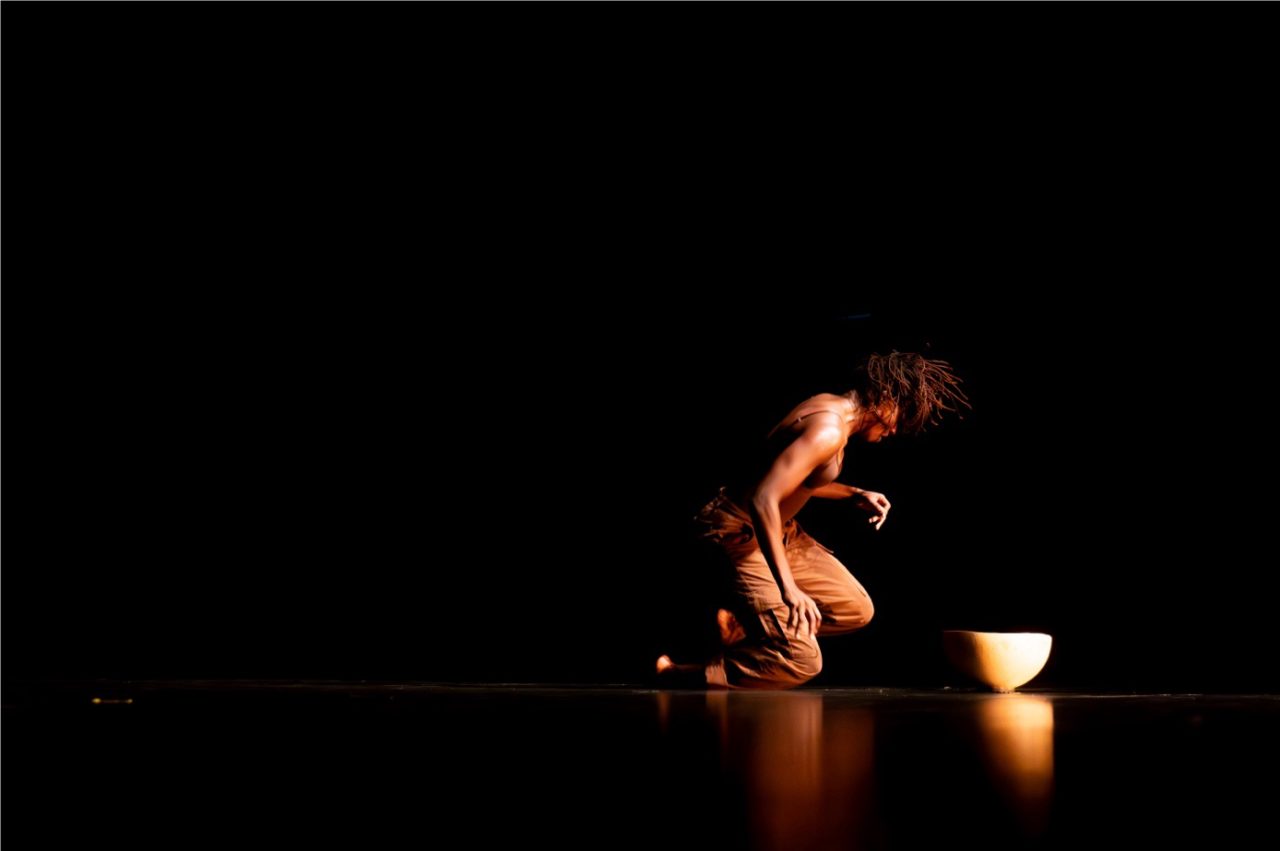KIZAZI
{{ time.start_TS | TS2dateFormat('MMM') }}
{{ time.start_TS | TS2dateFormat('YYYY') }}
| Artist Talk with Stéphanie Mwamba, Cris Moreira and Nitish Jain on Dec 6 at 10 pm at the Foyer hosted by Kerstin Ortmeier |
| 1st floor, Hall 5 |
| 6 years and older |
| Belongs to: Transkontinentale 2025 |
BERLIN PREMIERE
KIZAZI (Swahili for womb) is the first solo work by choreographer and performer Stéphanie Mwamba. What does it mean to grow up as a woman in the east of the Democratic Republic of Congo, in a region where the female body has been an oppressed territory, a combat zone, for more than 15 years? Through her dance, she reclaims interpretive authority over her body: between improvisation and choreography, organic, powerful movements emerge, weaving together into a political act of emancipation.
Artistic Direction & performance: Stéphanie Mwamba
External eye: Abdoulaye Trésor Konate, Nadia Beugré, Virginie Dupray
Music: Skill Sawasawa
Production: cie Ochula, Libr’Arts / Virginie Dupray, assisted by Noura Soumahoro
With support from: École des Sables – Toubab Dialaw, Amizero Company – Kigali,
French Embassy in Ivory Coast, Institut français de Côte d’Ivoire
Stéphanie Mwamba is a choreographer, performer and actress born in Goma in the Democratic Republic of Congo. In 2015, she started her training in contemporary and traditional dance at the Foyer Culturel of Goma and then founded her own dance company, Ochula, in Minova. As a performer, she took part in the revival of Pina Bausch’s Rite of Spring, alongside some 30 dancers from 14 different African countries, trained at the École des Sables in Senegal, and is still touring internationally with the piece.
In 2019, she founded the Ochula Centre, a space dedicated to training, research and education in traditional and contemporary dance, located in Minova in the DRC. Shaped by the different conflicts and rebel movements that hit the DRC for the past 20 years, forced to leave Kasai with her family, Stéphanie Mwamba’s journey draws into dance to reconnect with her culture. Her choreographic work is rooted in traditional dances, which she explores and confronts with contemporary techniques to question memory and transmission.
